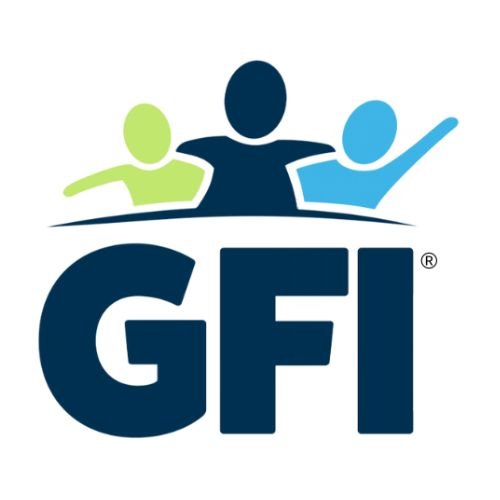Seeking an Adult Autism Diagnosis
A common topic in autism chatter of today is the “boom” in diagnoses, the refrain being that all of these people cannot actually be on the spectrum. The conversation is delicate because while there are a handful of explanations for this perceived rise in autism, not everyone who experiences difficulties in their social life is anything other than awkward. Not everyone who finds certain stimuli triggers their anxiety is living on the spectrum. It’s any wonder how many adults believe themselves to be autistic but aren’t, or are but have no idea.
Exploring Universal Design and Inclusion
While we celebrate the rainbow of neurodivergence, there also exists a challenge for educators and caregivers, who need to guide many variations of learners, regardless of neurotype, catering to their individual style of comprehension and attention. This is where Universal Design for Learning (UDL) truly changes the game.
Can Disability Harassment in School Be a Denial of Free Appropriate Public Education?
Students with autism are more likely than their neurotypical peers to become the targets of bullying behavior (PACER). When the relational aggression is specific to the student’s disability, it can be deemed disability harassment. Disability harassment is a violation of three federal laws: the Individuals with Disabilities Education Act (IDEA 2004), Sec. 504 of the Rehabilitation Act (1973), and Title II of the Americans with Disabilities Act (1990).
Fostering a Sense of Belonging in the Classroom
With technological distractions inside the classroom, lifestyle stressors outside of it, learning challenges and varying degrees of disability, not to mention every student’s inner voice that questions their worth at every turn, it’s a wonder how learners get through it. Finding a place to learn and belong is of urgent, vital importance. Feeling valued and included by peers begins with the educator, and benefits the grown-ups and kids alike.
Raising Awareness in the Workplace during NDEAM
October is underfoot, and with it comes National Disabled Employment Awareness Month (NDEAM). In this annual celebration, we recognize the contributions of disabled employees, and work toward improved opportunity throughout the workplace. This year’s theme is “Advancing Access and Equity,” highlighting that despite the 19% of the American workforce experiencing some form of disability, their unemployment rate tends to be double that of the general population. We simply must be better.
Myths about People with Divergent Neurology and Their Lived Experience
Back when they were going through various developmental screenings and diagnostic processes, I had some preconceived notions of what their newly-named neurological differences meant. When I heard “autism”, I thought “Rain Man”. When I heard “ADHD”, I thought “overdiagnosed”. When I heard “intellectual disability”, I thought “not capable of graduation”. None of those thoughts were helpful.
5 Steps to a More Inclusive Classroom
Educating a broad cross section of students successfully is difficult without deliberately creating a sense of belonging for all. Universal Design for Learning guidelines help educators develop instruction inclusive of differing learning abilities, neurotypes, genders, and cultures.
How to Advocate for Yourself in the Workplace
A shared work environment can be a minefield for those on the spectrum, sometimes because of the ignorance of others, which can result in “othering” those with autism. Factoring in varying learning differences among colleagues, it can be tricky to work within an employer’s framework.
Autigender and Pride Month Reflection
June was an exciting month, pairing perfect weather with a month long celebration of our LGBTQ+ friends, family, and for many, ourselves! Which is of course why it’s quite fitting that our very own Autistic Pride Day, June 18th, fell right smack in the middle of the party. And among our Pride celebrants we shine a spotlight on an overlapping notion, Autigender.
The Case for Explaining Your Autistic Child's Neurology
As a community helping children to be more aware, accepting, and empathetic, we can do better – and we must. Whether we’re improving our neurodivergent children’s self-awareness and perception or helping neuromajority children realize that different brain wiring impacts the way autistic peers understand and process the world around them, sharing information in an age-appropriate, strengths-based way is critical to healthy social emotional development.
5 Classroom Activities That Foster Inclusion
As educators, we value the importance of inclusion and recognize that each and every student comes with their own gifts, quirks, and challenges. Our kids, who are still discovering who they are, and each other, benefit from classroom activities that foster inclusion, educate and celebrate their unique characteristics, and create better connections between peers.
Teachers Who Make a Difference
It's the last week of school in our district, and my own children have been through tremendous transitions this year. In the hands of less capable educators, this week might have felt very different for us. I have had school years as a mom -- and I'm sure you teachers and students have had them, too -- when you're just grateful the year is OVER.
Making an impact
Whether it's as an employee or a parent, do you ever wonder, "Am I really making an impact? Is the effort I'm giving returning anything?" I know when my children were younger and I was home with them, some of those days seemed awfully long. I'd change my shirt for the third time that day because it smelled like the more unpleasant of baby scents and recall with longing the kudos of a client who appreciated a job well done. I began to wonder what my life would be like once my children were in school full-time and I could return to "work".














